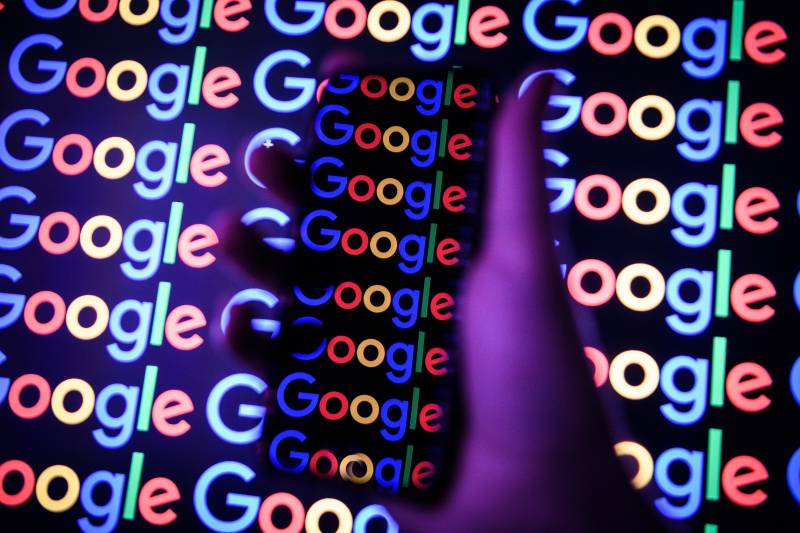The Justice Department’s case against Google is strikingly similar and its lawyers are angling for the same outcome.
“That case was about a monopolist tech platform and the government won,” says Rebecca Haw Allensworth, a professor at Vanderbilt Law School who specializes in antitrust law. “And so, everybody has viewed that as a kind of blueprint for how we might enforce the laws against the current tech giants.”
“This is a real test of whether or not that theory works,” Allensworth added.
Google’s exclusive deals with Apple & Samsung
The case against Google focuses on the company paying billions of dollars each year for exclusive agreements with phone makers, like Apple and Samsung, and web browsers, like Mozilla, which runs Firefox.
Those agreements let Google be the default search engine on most devices. The Justice Department says that by securing this position, Google has been able to box out smaller rivals.
DuckDuckGo is one of those smaller rivals. It has centered its search business around privacy and ensuring users aren’t tracked — unlike Google, which has long tracked users for targeted advertising. Kamyl Bazbaz, DuckDuckGo’s vice president of public affairs, says she’s glad this case is headed to trial.
“Google has used its monopoly power to block meaningful competition in the search market by putting a stranglehold on major distribution points for more than a decade,” Bazbaz wrote in an email. “So even though DuckDuckGo provides something extremely valuable that people want and Google won’t provide — real privacy — Google makes it unduly difficult to use DuckDuckGo by default.”
A 3-month trial without a jury and the judge will rule
After the Justice Department filed its case against Google in 2020, a group of 35 states, along with Guam, Puerto Rico and the District of Columbia, filed a near identical suit against Google. That suit will be tried with the Justice Department’s claims and also be heard at the trial kicking off on Tuesday.
Lawyers for the Justice Department are expected to cover the history of Google and how it became one of the most powerful companies on earth.
“Two decades ago, Google became the darling of Silicon Valley as a scrappy start-up with an innovative way to search the emerging internet,” the Justice Department wrote in its initial complaint. “That Google is long gone.”
Witness lists haven’t yet been released but it’s expected that Google CEO Sundar Pichai will testify. Top executives from other tech companies are also expected, including Apple’s Eddie Cue.
Judge Amit Mehta will preside over the trial; he was appointed by President Barack Obama in 2014. It’s a bench trial, so there’s no jury and Mehta will give the final ruling. The trial is slated to last about three months.
If Judge Mehta rules in favor of the Justice Department, it’s still unclear how he’d sanction Google. It could be anything from fines to a restructuring of the company, which could ultimately affect how people experience the internet.
Editor’s note: Apple and DuckDuckGo are among NPR’s financial supporters.
Copyright 2023 NPR. To see more, visit https://www.npr.org.
9(MDAxOTAwOTE4MDEyMTkxMDAzNjczZDljZA004))

9(MDAxOTAwOTE4MDEyMTkxMDAzNjczZDljZA004))